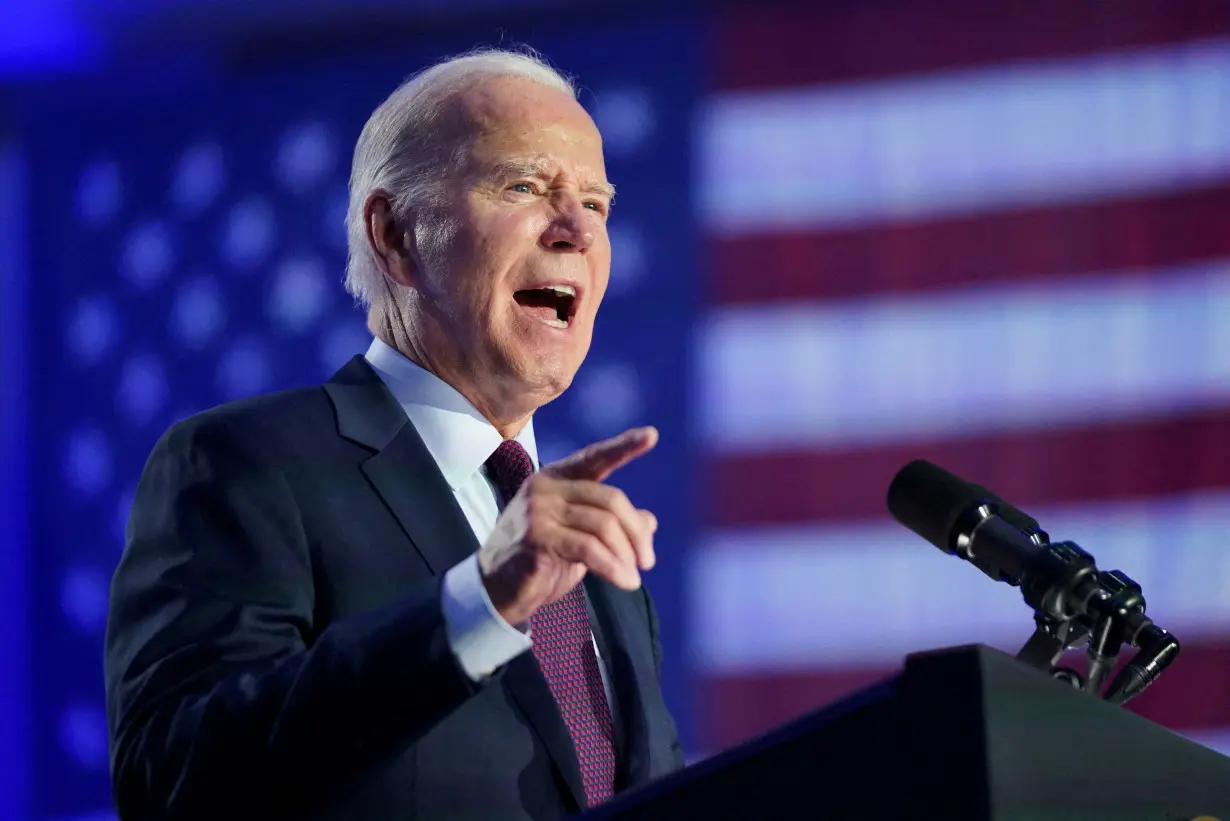By Nandita Bose
MINNEAPOLIS (Reuters) - The "uncommitted" movement to pressure U.S. President Joe Biden to change his policy on Israel is headed to Minnesota, where activists hope a coalition of progressive Democrats and Muslim Americans will fuel a strong protest vote on Super Tuesday.
Minnesota is not a battleground state, given Democrats' historic strength there, so any uncommitted vote won't carry the same impact as Michigan's unexpectedly large protest last week, which won two delegates for the Democratic National Convention in August.
Still the vote is being closely watched as a gauge of Biden's strength within his own party.
"This will be another protest vote against Biden with the aim of stopping the war," said Jaylani Hussein, co-chair of the Abandon Biden movement in Minnesota, one of several groups pushing the vote with phone banks, texting campaigns, and events in mosques and other community centers.
Hussein, who estimates the Midwestern state has about 250,000 Muslims, said the Minnesota effort aims to get at least 10,000 "uncommitted" votes but the numbers could end up being higher.
The uncommitted movement is asking Biden to back a permanent ceasefire and halt aid to Israel. Biden's early and strong support of Israel and his refusal to condition military aid on not killing innocent people or destroying infrastructure has sparked outrage in key parts of his coalition that could affect his chances of reelection against likely Republican rival Donald Trump.
Biden, 81, faces low general approval ratings and concern about his age, as does Trump, 77. If Trump is reelected, he is expected to be a strong supporter of Israel and its right-wing prime minister, Benjamin Netanyahu.
The Michigan results, where Biden won 81% of the vote, shows his "core group of supporters are still behind him," said an official from the Biden campaign - which expects to see the same result from Minnesota.
"None of this means we will ignore the Arab American and Muslim American population," the official said. "We will not. We are not taking anyone for granted."
The sharpest U.S. comment on the war to date came from Vice President Kamala Harris, who on Sunday called for an immediate ceasefire in Gaza and urged Hamas to accept a deal to release hostages in return for a six-week cessation of hostilities.
Even with a protest vote, Biden is expected to sweep Democratic primaries in Minnesota and more than a dozen other states on March 5, also known as Super Tuesday, and secure the Democratic nomination in the coming weeks.
Minnesota hasn't backed a Republican presidential candidate since Richard Nixon in 1972, though Trump came within 1.5 percentage points of winning in 2016. Biden won the state with over 233,000 votes in 2020.
'COMPARE HIM TO THE ALTERNATIVE'
Biden campaign and many Democratic Party officials believe disaffected Democrats will ultimately support Biden in November when faced with the prospect of Trump.
Democrats, overall, support Biden's handling of the Israel-Hamas conflict by 61%, February polling by Harvard-Harris shows, although a Reuters/Ipsos February poll show 56% of Democratsprefer a president who doesn't support military aid to Israel.
Ken Martin, chair of the Minnesota branch of the Democratic party, formally known as the Democratic-Farmer-Labor (DFL) Party, told reporters, "this is an existential election" and he anticipates Biden will have near-unanimous support in the state.
"I respect people's feelings and differences of opinion on a whole host of issues. But as Joe Biden says, 'don't compare him to the Almighty, compare him to the alternative,' and I think that's the reality here," Martin said.
(Reporting by Nandita Bose in Washington; Editing by Heather Timmons and Jonathan Oatis)



